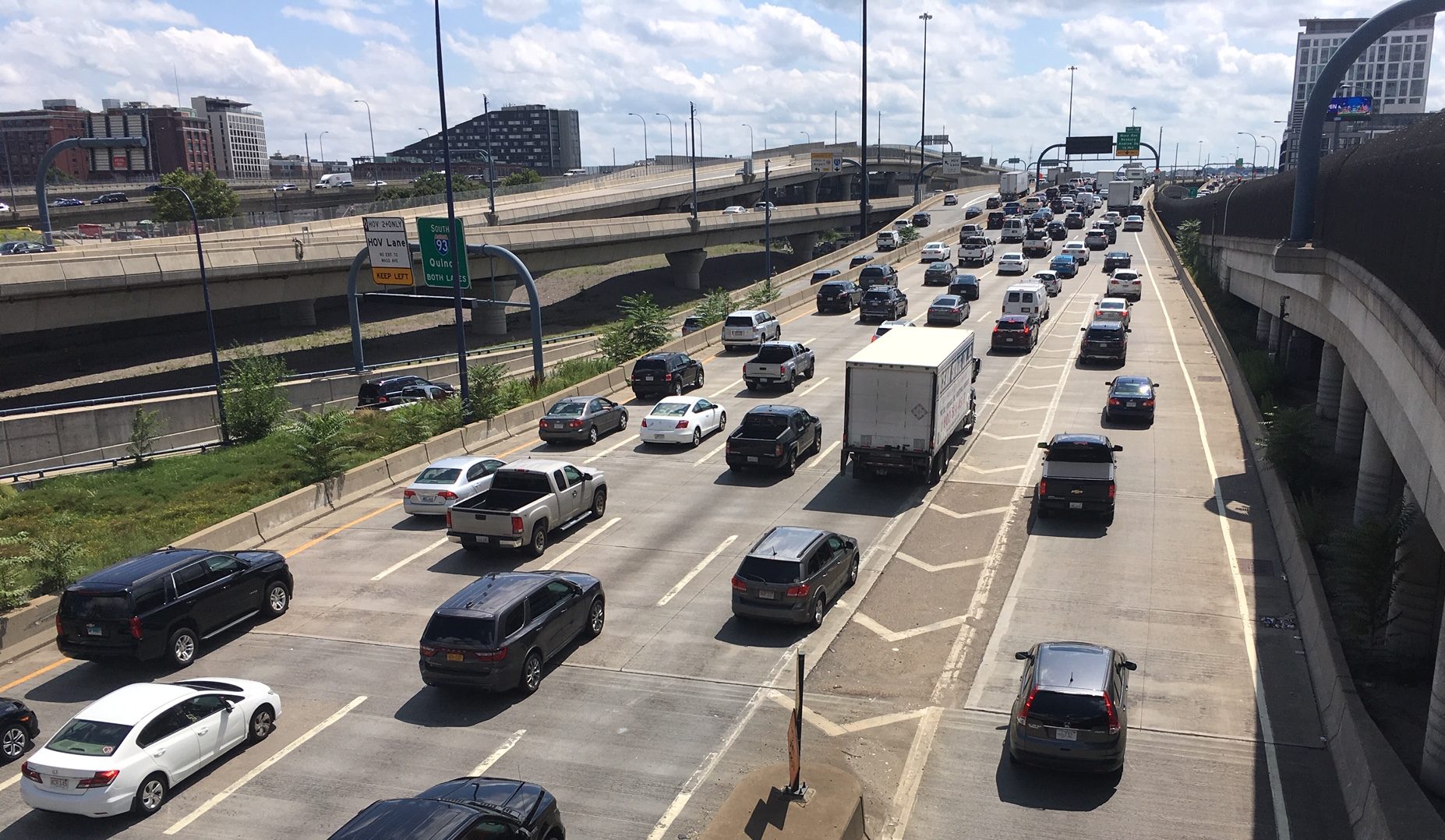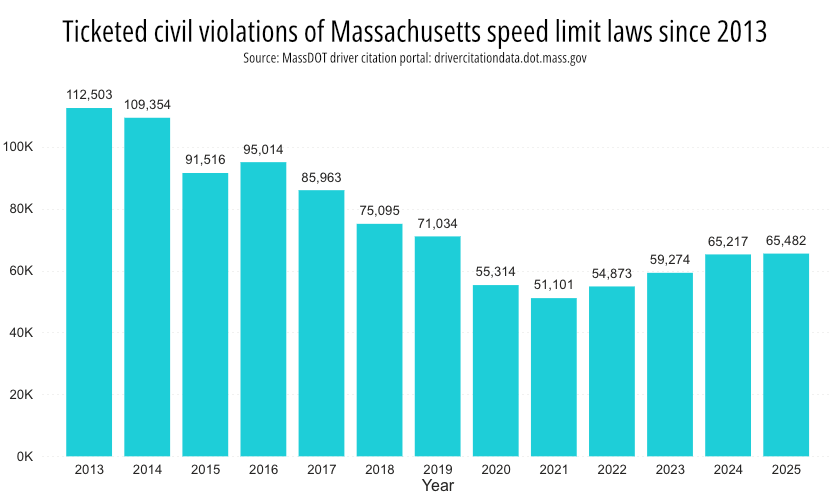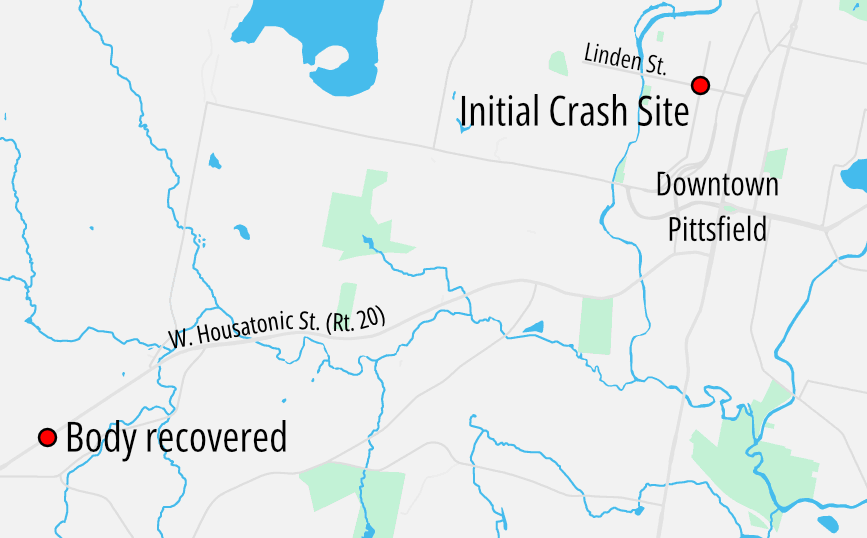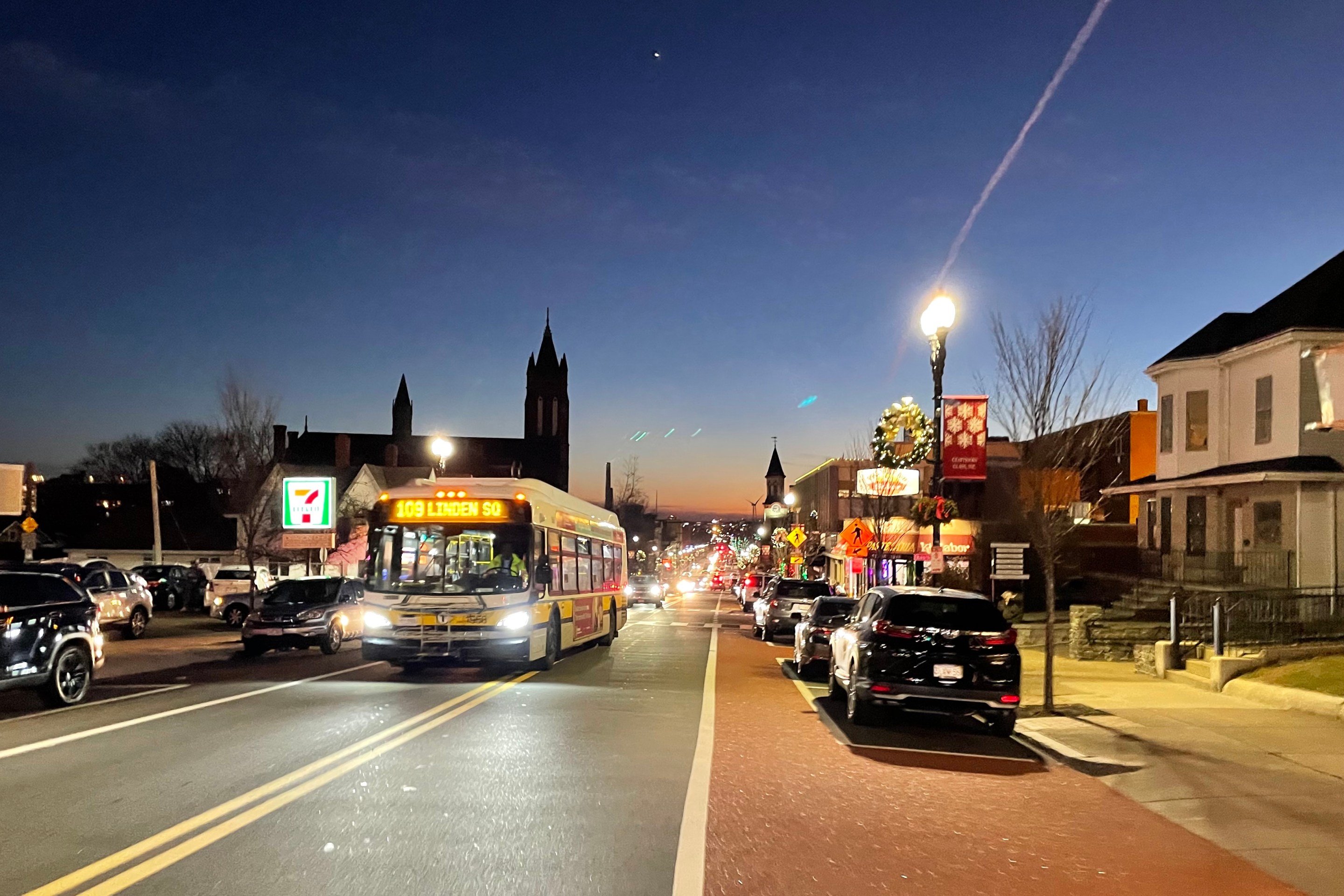For nearly 100 years, Massachusetts has funded a substantial share of its transportation program by taxing gasoline and diesel fuel by the gallon.
These fuel taxes generate over $700 million every year. But with global climate change and air quality control becoming a growing crisis, the state needs to rapidly transition away from fossil fuels.
While electrifying vehicles will deliver massive public health, economic, and environmental benefits, with those benefits will come budgetary challenges—and addressing those challenges means reimagining Massachusetts’s transportation financing.
To that end, Governor Maura Healey recently launched a Transportation Funding Task Force to brainstorm how to replace the gas tax with something that promotes a “safe, secure, reliable, and efficient transportation system.”
The simplest solution would be a fee on every kilowatt hour of electricity used to charge an electric vehicle. Think of it like a fuel tax levied on electrons instead of gasoline—something that would provide robust, reliable, long-term revenue. The state’s gas tax currently stands at 24 cents per gallon. A kilowatt hourly fee could be set to roughly equal the existing rate when accounting for the efficiency of electric vehicles.
The downside of a kilowatt hourly fee is that it doesn’t help achieve an efficient transportation system because it’s disconnected from where and when people use the system. According to a recent research report, drivers in the Boston metropolitan region experience 134 hours of delay caused by congestion each year.
Significantly expanding the regional highway network is prohibitively expensive and, more importantly, wouldn’t solve the congestion problem.
Why? Because when we add more pavement, people make more trips. The worse the regional congestion, the faster new highway lanes fill up. Within a handful of years, highway gridlock would return to pre-expansion levels. Expansion’s one enduring outcome would be a mountain of public debt that would have to be repaid over decades.
The only way to ensure the highway system runs smoothly and efficiently is by charging drivers directly for their use of the network.
This type of charge is typically called congestion pricing, though it would be more accurate to call it decongestion pricing.
An urban highway lane is a valuable—and very limited—commodity. Unlike a simple fuel tax, the technology underpinning decongestion pricing allows for sophisticated management of the transportation system. For instance, highway pricing can vary depending on the level of congestion, size and weight of the vehicle, time of day, location, and direction of travel—among other characteristics.
What’s more, the technology would allow Massachusetts to advance equity and climate goals. For instance, the state could offer a free pass to low-income residents while using a portion of the highway pricing revenue to expand public transportation, including more free bus service in economically distressed areas.
The state could also choose to reward travel behaviors that improve overall efficiency, such as carpooling or off-peak commuting. Imagine being offered a significant discount to ride with a friend or shift your commute time by 15 to 20 minutes.
Unlike existing tolls designed merely to raise money for repaying project debts, advanced decongestion pricing systems allow for much more sophisticated system management that advances Massachusetts’s most urgent policy goals.
Not every part of Massachusetts faces congestion like the Boston area. The state will likely require a mixture of kilowatt hourly fees and advanced highway pricing to meet its needs.
The death of the gas tax is a generational opportunity for Massachusetts. Right now, the state is looking at a window of opportunity to re-imagine its transportation system and redesign its financing in order to ensure that every resident has access to system that is not only efficient and reliable, but also one that offers robust alternatives to driving to meet daily mobility needs.
Kevin DeGood is the director of infrastructure policy at the Center for American Progress, a public policy organization headquartered in Washington, D.C.






